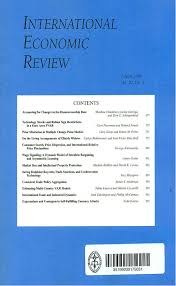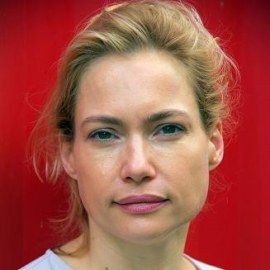

Ines Lindner
Biography
Ines Lindner is associate professor of Mathematical Economics at the Vrije Universiteit Amsterdam. She graduated from the University of Hamburg as Diplom-Mathematikerin in 1998 and completed her Ph.D. in Mathematical Economics in 2003.
Before joining VU Amsterdam in 2007, she held the positions at CORE, Université Catholique de Louvain (BE), Naval Postgraduate School, Monterey (USA) and Utrecht School of Economics.
She has published in leading economics journals (Journal of Development Economics, International Economic Review, Social Networks) and is Tinbergen Institute Research Fellow.
Ines is the head of SBE Innovation Center which was nominated for the VU Innovation Price is 2015. In 2017, she won the VU Innovation Price for the Online Summer Prep-Campus SBE
Key publications

List of publications
Lindner, I. and Strulik, H. (2020). Innovation and inequality in a small world International Economic Review, 61(2):683--719.
Koster, M., Kurz, S., Lindner, I. and Napel, S. (2017). The prediction value Social Choice and Welfare, 48(2):433--460.
Huang, J., Koster, M. and Lindner, I. (2016). Diffusion of behavior in network games with threshold dynamics Mathematical Social Sciences, 84(November):109--118.
Lindner, I. and Strulik, H. (2014). From Tradition to Modernity: Economic Growth in a Small World Journal of Development Economics, 109(July):17--29.
Lindner, I. (2012). [Review of] Annick Laruelle and Federico Valencio: Voting and collective decision-making (Cambridge University Press, Cambridge, 2008) Social Choice and Welfare, 38(1):161--179.
Lindner, I., Koster, M., Lindelauf, R. and Owen, G. (2008). Mass-Mobilization with Noisy Conditional Beliefs Mathematical Social Sciences, 55(1):55--77.
Lindner, I. (2008). A Special Case of Penrose's Limit Theorem When Abstention is Allowed Theory and Decision, 64(4):495--518.
Lindner, I. and Strulik, H. (2008). Social Fractionalization, Endogenous Appropriation Norms end Economic Development Economica, 75:244--258.
Lindner, I. (2008). The power of a collectivity to act in weighted voting games with many small voters Social Choice and Welfare, 30(4):581--601.
Lindner, I. (2008). A Generalization of Condorcet's Jury Theorem to Weighted Voting Games with Many Small Voters Economic Theory, 35(3):607--611.
Lindner, I. and Owen, G. (2007). Cases where the Penrose Limit Theorem does not hold Mathematical Social Sciences, 53(3):232--238.
Owen, G., Lindner, I., Feld, S., Grofman, B. and Ray, L. (2006). A Simple 'Market Value' Bargaining Model for Weighted Voting Games: Characterization and Limit Theorems International Journal of Game Theory, 35(1):111--128.
Lindner, I. and Strulik, H. (2004). Distributive politics and economic growth: the Markovian Stackelberg solution Economic Theory, 23(2):439--444.
Lindner, I. and Machover, M. (2004). L.S. Penrose's limit theorem: proof of some special cases Mathematical Social Sciences, 47(1):37--49.
Lindner, I. and Strulik, H. (2004). Why not Africa? – Growth and Welfare Effects of Secure Property Rights Public Choice, 120:143--167.